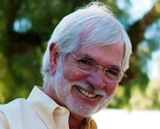The latest flap over Israeli housing construction in East Jerusalem has caused me to reflect upon the very deep and complicated feelings I have about the city.
I first passed through Jerusalem in December 1979 in an attempt to sneak into Tehran shortly after the American embassy hostages were taken. I returned two years later following the favorable verdict in the Holocaust Denial case and shared morning tea with Prime Minister Begin. In 1992, I testified in a trial there about the publication of the suppressed Dead Sea Scrolls and refused to identify my secret client. My last visit was in 2000 when my wife and I were married at Christ Church in the Old City on Valentine's Day.
The political issue is not who has the greatest property rights in the West Bank and East Jerusalem. Nor, is it whether the Palestinian people are more genetically related to the ancient Israelis who occupied Jerusalem at the time of Jesus, than are the Ashkenazi Jews who now control the Israeli government and who exercise great influence over U.S. policy.
The critical question is: "what can be done to peacefully resolve the dispute in a way that protects the political rights and ensures the operational and economic security of the Israeli and Palestinian people and which removes the United States as a target for terrorists?"
Rather than answering with a complicated policy paper, let me share a simple vision I have experienced over the years.
First, accept that the nation of Israel is politically, economically, and militarily capable of defending its own interests on the world stage and that it has the right to be free of internal terrorists attacks.
Second, imagine that the United Nations imposes a 50-year protectorate over the land of Palestine, including Gaza, as it existed prior to the 1967 war and declared the area to be a duty-free economic zone, with security and freedom of access guaranteed by the UN.
This is the vision:
Instead of the existing concrete wall, I imagine a modern freeway extending from Gaza through Hebron, Bethlehem, East Jerusalem, Jericho and north along the 1967 West Bank border through the Golan Heights to the Syrian and Lebanese borders and terminating at the Mediterranean Sea.
Like all freeways, I imagine that the highway (border) is fenced and that it is patrolled and controlled by three-person motorized teams consisting of a non-Arab UN police supervisor, an Israeli police officer and a Palestinian police officer.
I imagine that the protectorate police force is only armed with non-military weapons, that all members are highly trained professionals, and that the protectorate provides economic and physical security to all of its inhabitants, both Palestinians and Jews, from its administrative headquarters in East Jerusalem.
I imagine that the highway serves as a conduit for free trade and tourism and that it promotes the economic interests of both Israel and Palestine.
(Note: You can view every article as one long page if you sign up as an Advocate Member, or higher).






